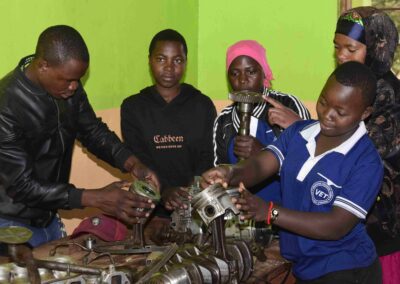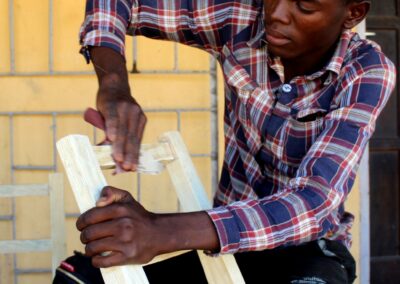An amount of € 4,200 was required to purchase the necessary equipment, such as computers, printers and modems.
Sponsors: KWA bedrijfsadviseurs
Project information
The situation
The importance of the project
The implementing organisation
The school has approximately 140 students and has eight classrooms, two dormitories and four lodgings for teachers. Two additional classrooms are under construction, one of which is later used for the computer courses.
The envisaged project results
- The community builds an extra classroom;
- The classroom for the computer courses will be furnished with all necessary equipment, such as computers, printers, modems and internet connection, allowing to provide good quality teaching;
- An instructor be appointed with knowledge and experience in teaching the use of computers and computer programs; and
- Students will acquire knowledge and skills in computer and computer programs; thus, obtaining a recognized diploma and able to use this knowledge and these skills in the practice of their profession.
The chance of sustainability
The intended practical-oriented training courses must enable students to make assignments, deliver products that can be sold, and generate the necessary income for the centre to pay for the course material themselves.
Progress of the project
With part of the grant (€ 2,800) Chipole vocational training centre procured some equipment to initiate the computer training. The remaining grant (€ 1,400) was made available six months later, to expand the capacity of the computer training to planned capacity. The initial training started in August 2020, and as of January 2021 all students can attend the mandatory computer training.
The results

Dear visitor,
We are grateful that you are willing to support us with a donation!
Please fill in the fields below and push the button PAY to transfer the amount by iDeal.




